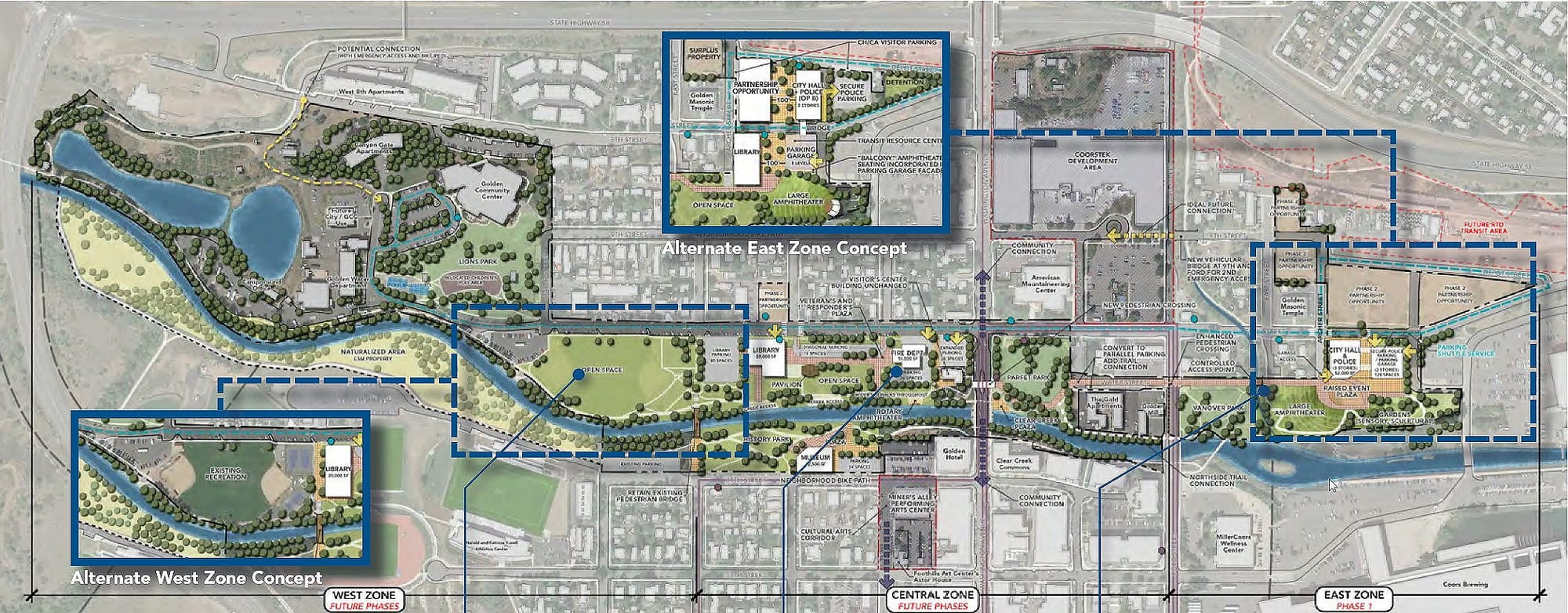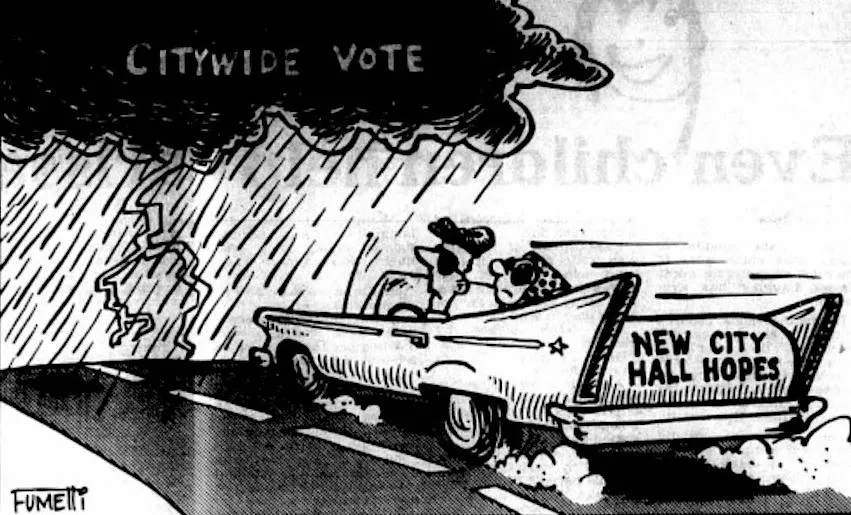37 Years Ago
The June 30, 1987 Transcript revealed that a group of residents had drafted a citizens initiative mandating that any tax increase would require citizen approval.
“I should have a right to vote if the city spends that much money,” committee member Roy Claar told council. “This is one of the largest lump sums the city has ever spent.” Claar, however, confided that he didn’t know whether he would vote for, or against, a city hall. He just wanted the chance to vote.
The committee gathered 1,000 signatures, which was more than enough to put the proposed change on a ballot.
Brown [the mayor] wasn’t concerned about the citizens’ movement against the city hall. “Honestly,” he said, “if the community wants to vote, I’m not one who’s going to stand in the way. I just made my decision based on the fact that the citizens elected me to make those decisions.”
Council was, however, concerned that the proposed initiative would be too restrictive of future decisions. They agreed to put the new City Hall on a ballot in exchange for the group agreeing to put their initiative on hold.
Staff is not in agreement with this chosen course of action or with (the resolution).
Golden City Manager Glenn Hill – Golden Transcript – July 9, 1987
Letters continued to appear in the Transcript, both pro and con on the new City Hall. Supporters of the history museum were wary about the undefined plans to relocate it “somewhere.”
On October 29th, the Transcript ran an editorial recommending a “no” vote on the new City Hall:
…it is our contention that right now the stability of our economy is dependent on the ability of our governments to control spending…. Golden has a million-plus dollars and that money has been burning a hole in the collective pocket of the Golden council since it was discovered…. We suggest a no vote.
On November 3rd, the new City Hall was voted down, 1298 to 456. The two incumbent City Councilors who had been running for reelection were defeated. Six months later, the City Manager was fired.
City Staff still needed more space, so in the years that followed, the City acquired the former library building, remodeled the Public Works building and Fire Station #1, built new City shops, and bought the former Transcript building (now the City Hall Annex).
***
Epilogue
I was here in 1987, but I wasn’t following local politics, so this whole (four day long!) story was an interesting “new” local history story to me.
The parallels between the 1986/87 “new city hall” campaign and the current one are not exact. The City’s revenues and budget are much larger and far more complex in the current era. Golden’s residents are not presently living with 7-8% unemployment.
Our approach to budgeting has changed drastically in that time: debt has become our way of life. Instead of asking “do we have enough money to do this,” we ask, “do we have sufficient bonding capacity,” (which means, our ability to repay outstanding debt).
Work life has changed. Since the pandemic many of the City’s employees work at home part time. Within the next year, employees will move from a 40 hour work week to a 32 hour work week. With those changes, will we still need as many offices? Since the pandemic, the City has re-done their pre-2020 space study. I haven’t seen the new study, so I’m not sure how work-at-home and shortened work hours affect the need for office space.
I think citizens expect more information than we used to. City staff is saying that a new City Hall will cost $59 million dollars and remodeling the old city hall would cost $50 million. What is that based on? Was there a study by architects/engineers to calculate the remodeling cost, or is $50 million just close enough to $59 million to make the decision a no-brainer? If there was such a study, I haven’t found it on any of the City’s websites.

The City’s method of proposing this project varied greatly between 1987 and 2020-2024:
In 1987, the City said they wanted to build a new City Hall.
In 2020, the City said they wanted to turn the Creek front into a vast new park. The new City Hall was a small detail in a much larger vision–but it’s the first thing on the list, and the most expensive element. I felt that the “Heart of Golden” process employed some sleight of hand: look at all this greenery, and pay no attention to those buildings on the right side of the drawing. Imagine the pickleball courts!
The method of gaining Council approval has also changed. Instead of one particular night at City Council when Councilors would be asked “Do you approve of this plan to build a new City Hall?” they now go through a series of smaller decisions.
“Do you like the plan so far?”
“Do you want us to keep studying this?”
“Which of these options do you like?”
These questions are posed during Council Study Sessions–which do not include opportunity for public comment. Council is not allowed to formally vote or make decisions during Study Sessions–instead, they discuss matters, ask questions, and provide their general inclination using a thumbs-up or thumbs-down response.
The most recent of these non-votes occurred during a February 13th Study Session, when Council indicated which option they liked best. You can watch the discussion here. The magic “thumbs up” moment occurs at 54 minutes. So that’s it–that was the moment when Council approved spending $59 million (to start). During a meeting where public comment was not permitted. During a meeting where formal decisions were not permitted.
I kept waiting for that moment of truth–a public hearing where Council officially approved or disapproved this massive spending decision. I anticipated listening to public comment, and hearing what the citizens thought of this plan. That never happened; instead, we just drifted into this state of having committed to a really major expenditure without public discussion.
The next decision will come during the April 9th Study Session (again–no public comment allowed). At that time, Staff will ask Council whether the project should be funded with bonds (requiring a public vote) or Certificates of Participation (no vote needed).
If find myself agreeing with Roy Claar, as the Transcript quoted him in 1987:
“I should have a right to vote if the city spends that much money,” committee member Roy Claar told council. “This is one of the largest lump sums the city has ever spent.” Claar, however, confided that he didn’t know whether he would vote for, or against, a city hall. He just wanted the chance to vote.
Thanks to the Golden History Museum for providing the online cache of historic Transcripts, and to the Golden Transcript for documenting our history since 1866!









